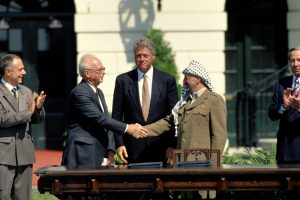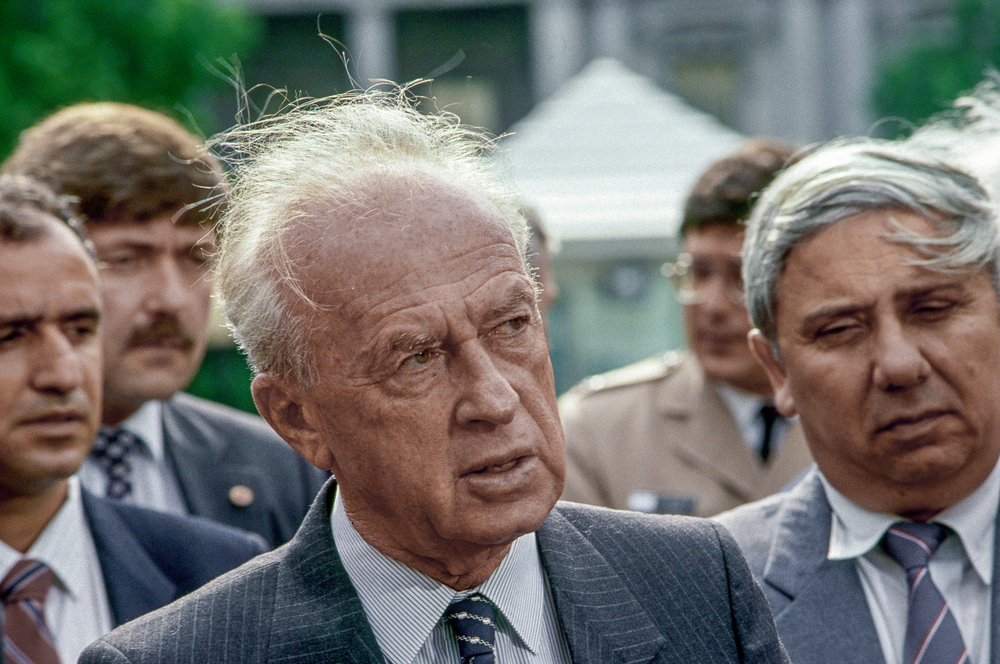Yitzhak Rabin
Yitzhak Rabin was an Israeli politician. In the 1960s, Rabin served as commander-in-chief of the army. After this, he started his political career. In 1974, Yitzhak was appointed the fifth Prime Minister of Israel.
Yitzhak Rabin’s personal life
Yitzhak Rabin was born in 1922 in former Mandatory Palestine and grew up in Tel Aviv. Rabin married Lea Schlossberg during the Israeli War of Independence.
Rabin started his career as Chief of Military Operations within the Palmach, the Haganah’s elite combat unit. The Haganah was a paramilitary organization that protected the Jewish population in British Mandatory Palestine. Later, this organization merged into the Israel Defense Forces. Rabin fought in Israel’s 1948 War of Independence and worked himself up to the rank of army commander.
Rabin’s political career

Yitzhak Rabin of Israel and Yasser Arafat of the PLO shake hands at the White House South Lawn after signing the Peace Accords, President Bill Clinton looks on. – Washington DC. USA, 13th September, 1993
After his military service, Yitzhak Rabin began his political career. He started in 1968 as the Israeli Ambassador to the United States. In 1973, he returned to Israel and joined the Labour Party. In 1974, Rabin became the party leader of his party, beating his fellow party member Shimon Peres. Rabin became Prime Minister with Shimon Peres as Deputy Prime Minister and Defence Minister. His first term as Prime Minister lasted until 1977, after which he assumed the role of Defence Minister under Prime Ministers Shimon Peres and Yitzhak Shamir. In 1992, Yitzhak Rabin was re-elected Prime Minister.
During his second term as the Prime Minister of Israel, Rabin made a renewed attempt at peace with the PLO. These peace negotiations led to the 1993 Oslo Accords. Yitzhak Rabin, Shimon Peres, and Yasser Arafat received the 1994 Nobel Peace Prize for this. In the same year, Rabin also concluded a peace agreement with King Hussein of Jordan. The agreement saw to it that Israel and Jordan opened their borders to both business and leisure tourism.
The final years of Yitzhak Rabin
It was during this period that the relationship between Rabin and Peres improved. Because of their political position, Rabin as Prime Minister and Peres as Minister of Foreign Affairs, the two had to work together a lot. It led to the famous embrace on 4 November 1995, at a mass rally for the Oslo Accords. However, this was the then Prime Minister’s last performance. After Rabin had spoken, he walked off stage on his way to his car. On the way, the right-wing extremist Yigal Amir shot the Israeli prime minister. This drama is commemorated every year with a manifestation on the square where the murder took place.




